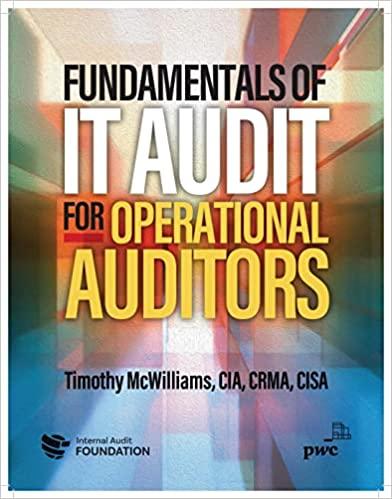Question
Background: Your client, Fred Mertz, is a calendar-year, cash method taxpayer. He is the landlord of a building and is looking to sign a three-year
Background:
Your client, Fred Mertz, is a calendar-year, cash method taxpayer. He is the landlord of a building and is looking to sign a three-year lease with Ricky Ricardo. Ricky will move in December 1, 2017 and move out November 30, 2020. They are considering several options that Fred has asked you to evaluate. For purposes of your analysis assume that all payments will be made on time under the terms of the lease.
Option 1 Ricky has offered to sign the lease on December 1, 2017. The terms of the lease are: the monthly rental is $2,000 payable on the first day of the following month and there is a $4,000 security deposit payable at the time the lease is signed that will be refunded at the end of the lease. (Hint: look for a 1990 Supreme Court case)
Option 2 Ricky has offered to sign the lease on November 30, 2017. The terms of the lease are: the monthly rental is $2,000 payable on the first day of each month and there is a $2,000 security deposit payable at the time the lease is signed that will be applied to the last month of the lease. (Hint: look for a Regulation)
Option 3 Ricky has offered to sign the lease on December 1, 2017. The terms of the lease are: the annual rent is $23,000 payable on the date the lease is signed and on the anniversary date every year thereafter and there is no security deposit.
Write a memo to Fred Mertz detailing the amounts that will be included in his gross income for Years 1, 2, 3, and 4. Include an explanation of your analysis as well as any nontax considerations you recommend he consider. It is not necessary to perform any additional computations since Fred is cheap. Once Fred decides which lease option to choose, he may ask you to perform further analysis. Be sure to let him know he has this option.
Your responsibility:
Prepare a tax research memo using US TAX law addressing the question that has been raised.
You will need to support your conclusion using primary sources of tax law. Your textbook is NOT primary authority.
You must use proper citation form in your memo (see Chapter 2 for help with citation form). The form for this communication should be professional and in the form of a tax research memo. Do yourself a favor and look at the grading rubric before you submit.
This memo should be whatever length you feel is appropriate to resolve the issues. We do NOT use a bibliography or list of references in a tax research memo. You will see that citations are within the text of the document in the example. Once a court case has been cited in full, it can be referred to using simply the name in italics.
Step by Step Solution
There are 3 Steps involved in it
Step: 1

Get Instant Access to Expert-Tailored Solutions
See step-by-step solutions with expert insights and AI powered tools for academic success
Step: 2

Step: 3

Ace Your Homework with AI
Get the answers you need in no time with our AI-driven, step-by-step assistance
Get Started


